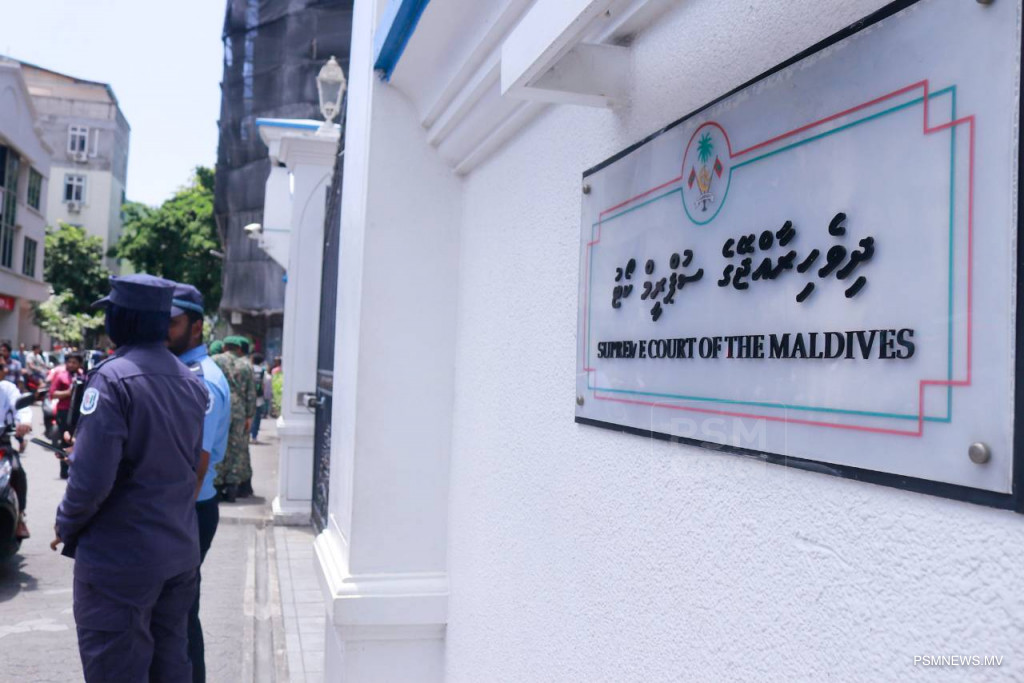Male’, Maldives – The Supreme Court of Maldives has ordered that verdicts declared as per the Islamic Shariah and those decided by the Judge, with the exception of the capital punishment, must be enforced without forwarding it to a higher court for validation, should such verdicts not be appealed by either party.
According to the circular released by the Supreme Court in 2015, should those who have received the capital punishment, and those who have received verdicts which have been decided by the presiding Judge in cases where there is not definitive punishment set forth, not appeal their verdicts in a higher court, the state must do so, in either the High Court or the Supreme Court. Further, according to the section 1,205 even if an individual is found guilty of crimes stated in Islamic Shariah or that of Qisas, the verdict can only be enforced when the Supreme Court declares a final verdict on the matter.
In a verdict declared by the Supreme Court Sunday regarding the case which received a 100 lash punishment for adultery, appealed by the state with the Court, it said that the purpose of section 1,205 of the Penal Code is to ensure that verdicts in cases of Qisas are not enforced prior to the appeal process being exhausted, highlighting that, should such a verdict be enforced prior to the exhaustion of the appeal process, the damage caused may be irreversible.
As such, should cases of Hadd not be appealed by the party after a verdict, it may be deemed as the final judgement, with the exhaustion of the appeal process, which would result in the state institutions being required to execute the verdict.
However, capital punishments must be appealed by the state to the Supreme Court, as section 1,204 of the Penal Code states that all capital punishments must be appealed with higher courts, said the Supreme Court on Sunday.
The case was presided over by Justice Husnul Suood, Justice Ali Rasheed and Justice Dr. Mohamed Ibrahim, with Justice Suood as presiding Judge.





